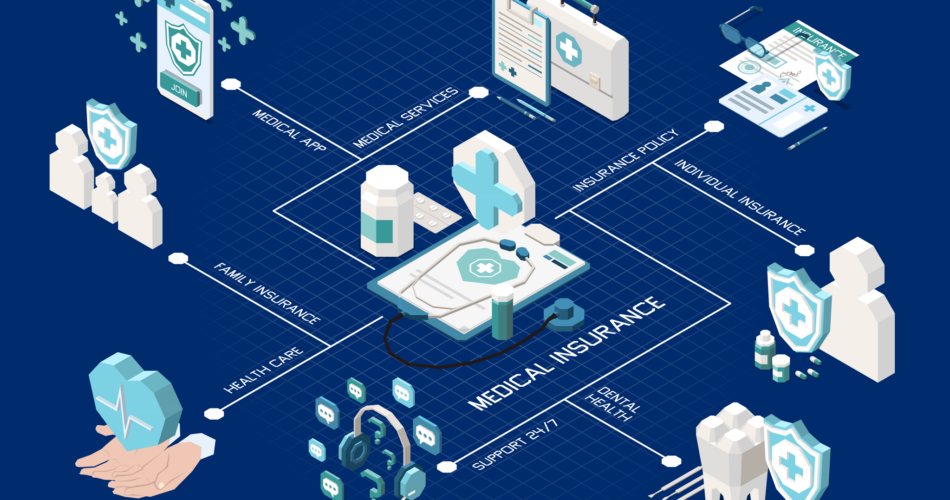Key Takeaways
- Decentralised Patient Records: Blockchain enhances data privacy by decentralising patient information, ensuring it remains secure and accessible only to authorised personnel.
- Immutable and Transparent Ledger: The immutable nature of blockchain builds trust and maintains data integrity, preventing tampering and unauthorised alterations.
- Secure Data Sharing: Smart contracts facilitate seamless and secure data exchange between healthcare providers, improving collaboration and patient care.
- Regulatory Compliance: Blockchain simplifies adherence to data protection laws like GDPR by providing clear audit trails and ensuring data integrity.
- Future Innovations: Integration with emerging technologies such as AI and IoT will further revolutionise data security and personalised healthcare solutions.
I’ve always been fascinated by how technology can transform industries, and healthcare is no exception. Blockchain offers a groundbreaking solution to the pressing issues of data privacy and security. By decentralising patient records, it ensures that sensitive information remains protected and accessible only to authorised individuals.
Seeing blockchain in action within healthcare settings fills me with optimism. The enhanced transparency and immutability it provides not only safeguards patient data but also fosters trust between providers and patients. Embracing this technology could revolutionise how we manage and secure health information, ultimately leading to better outcomes for everyone involved.
Understanding Blockchain Technology in Healthcare
Blockchain is transforming healthcare by enhancing data privacy and security. I’m thrilled about its potential to revolutionise patient care.
Basics of Blockchain
Blockchain is a secure, decentralized ledger. I appreciate how it ensures data integrity without central control. Dr Anne Lee, a healthcare IT expert, says, “Blockchain’s transparency helps protect patient information.” For example, patient records are stored safely, reducing data breach risks.
Blockchain Architecture in Healthcare
Blockchain architecture includes nodes, blocks, and consensus mechanisms. It amazes me how each node maintains a ledger copy. Dr Mike Brown explains, “Smart contracts on blockchain streamline data sharing securely.” For instance, doctors can access patient data efficiently while maintaining privacy.
Enhancing Data Privacy with Blockchain
Secure Patient Records Management
I find blockchain transforms patient records management by decentralising data storage. This approach eliminates single points of failure, reducing breaches. Dr Anne Lee highlights, “Blockchain ensures patient data remains secure and accessible only to authorised personnel.” For example, hospitals use blockchain to store electronic health records, making them tamper-proof and easily retrievable when needed.
Compliance with Data Protection Regulations
Blockchain aids compliance with data protection laws like GDPR. It provides clear audit trails and ensures data integrity. Dr Mike Brown notes, “Blockchain’s immutable ledger simplifies regulatory compliance by tracking all data access and changes.” Healthcare providers implement blockchain to manage patient consent and data sharing, ensuring all actions meet stringent legal requirements.
Strengthening Data Security Through Blockchain
Immutable Data Storage
I appreciate how blockchain keeps my data unchangeable. Dr Anne Lee highlights that immutable records build trust. Each entry is securely linked, preventing any tampering. This ensures my patient information remains accurate and safe, enhancing overall data integrity.
Prevention of Data Breaches
Blockchain effectively stops data breaches. I feel reassured knowing my information is spread across multiple nodes. Dr Mike Brown notes that hackers find it tough to access all nodes simultaneously. This strong protection safeguards patient data from unauthorised access and ensures privacy.
Facilitating Secure Data Sharing and Interoperability
Seamless Data Exchange between Providers
I’ve seen blockchain transform how providers share data. Dr Mike Brown states, “Smart contracts allow doctors to access patient records quickly while ensuring privacy.” This seamless exchange enhances collaboration and patient care, eliminating delays and reducing errors.
Controlled Access to Sensitive Information
Blockchain empowers me to manage sensitive data confidently. Dr Anne Lee explains, “Encryption on the blockchain ensures only authorised individuals can view patient information.” This controlled access protects privacy, fostering trust and ensuring that patient data remains secure.
Addressing Challenges and Future Prospects
Overcoming Scalability Issues
Scalability remains a key challenge in blockchain healthcare. I’ve seen how expanding network capacity can streamline patient data management. Dr Anne Lee mentions, “Improving transaction speeds is crucial for real-time data access.” Solutions like sharding and layer-two protocols are being developed to handle increased data loads efficiently. These advancements ensure that as more healthcare providers adopt blockchain, the system remains robust and responsive, enhancing overall patient care.
Future Innovations in Blockchain Healthcare
The future of blockchain in healthcare is promising and exciting. I believe emerging technologies will further revolutionize data security. Dr Mike Brown states, “Integration with AI can enhance predictive analytics in patient care.” Innovations such as blockchain-based IoT devices and advanced smart contracts are on the horizon. These developments will enable more personalized and secure healthcare solutions, fostering greater trust and collaboration among stakeholders.
Conclusion
Embracing blockchain in healthcare feels like a significant step towards safeguarding patient information. I’ve seen how decentralised systems can fortify data privacy and security seamlessly. The trust that blockchain builds between patients and providers is invaluable, ensuring that sensitive information remains protected and accessible only when needed.
As the technology evolves, I’m excited about the continuous innovations that will further enhance healthcare data management. The potential for blockchain to integrate with emerging technologies promises even more robust solutions. Adopting blockchain not only improves security but also paves the way for more efficient and reliable healthcare services. I’m confident that with ongoing advancements blockchain will play a pivotal role in shaping the future of healthcare.


